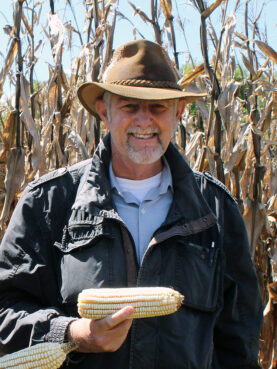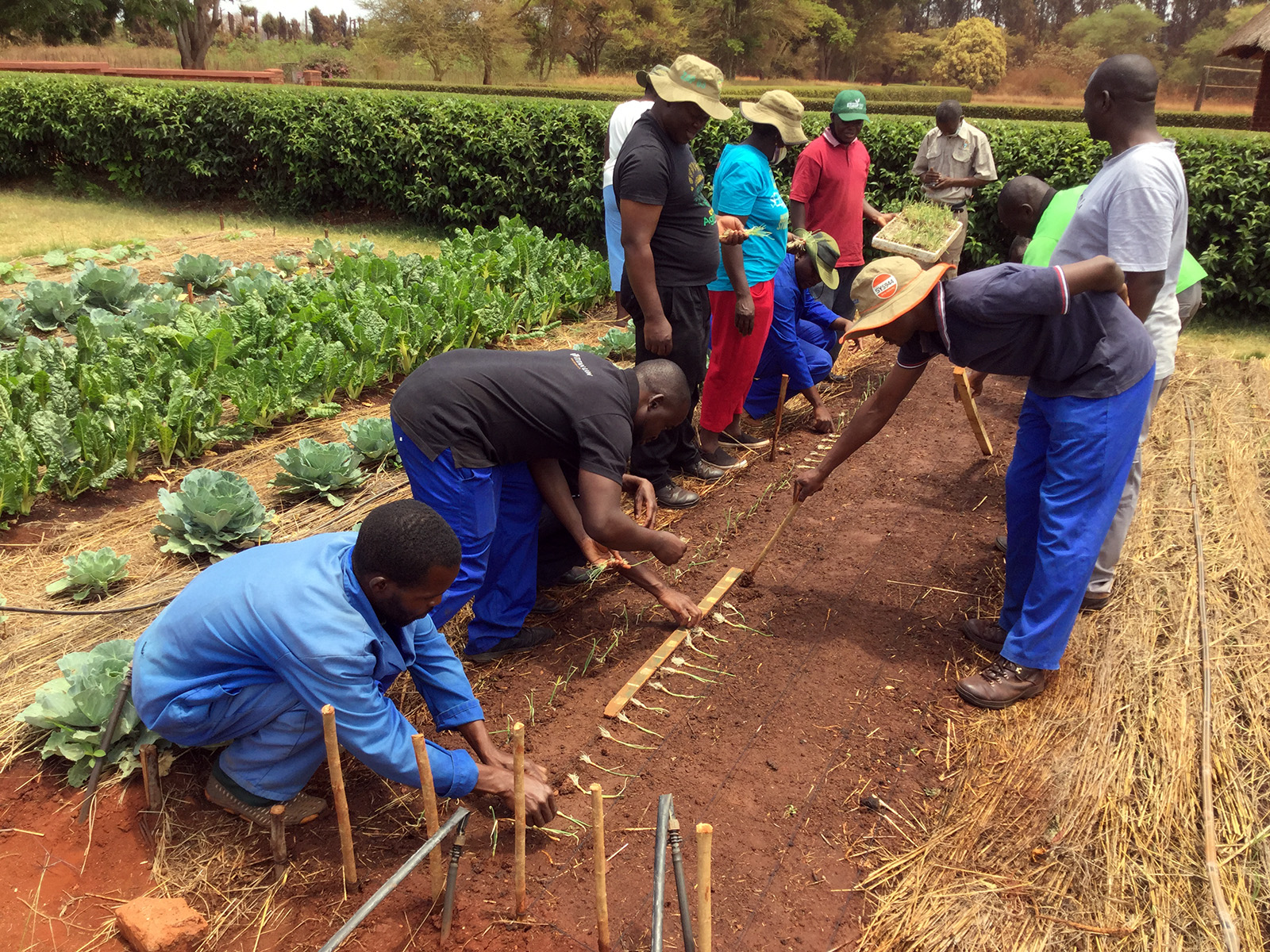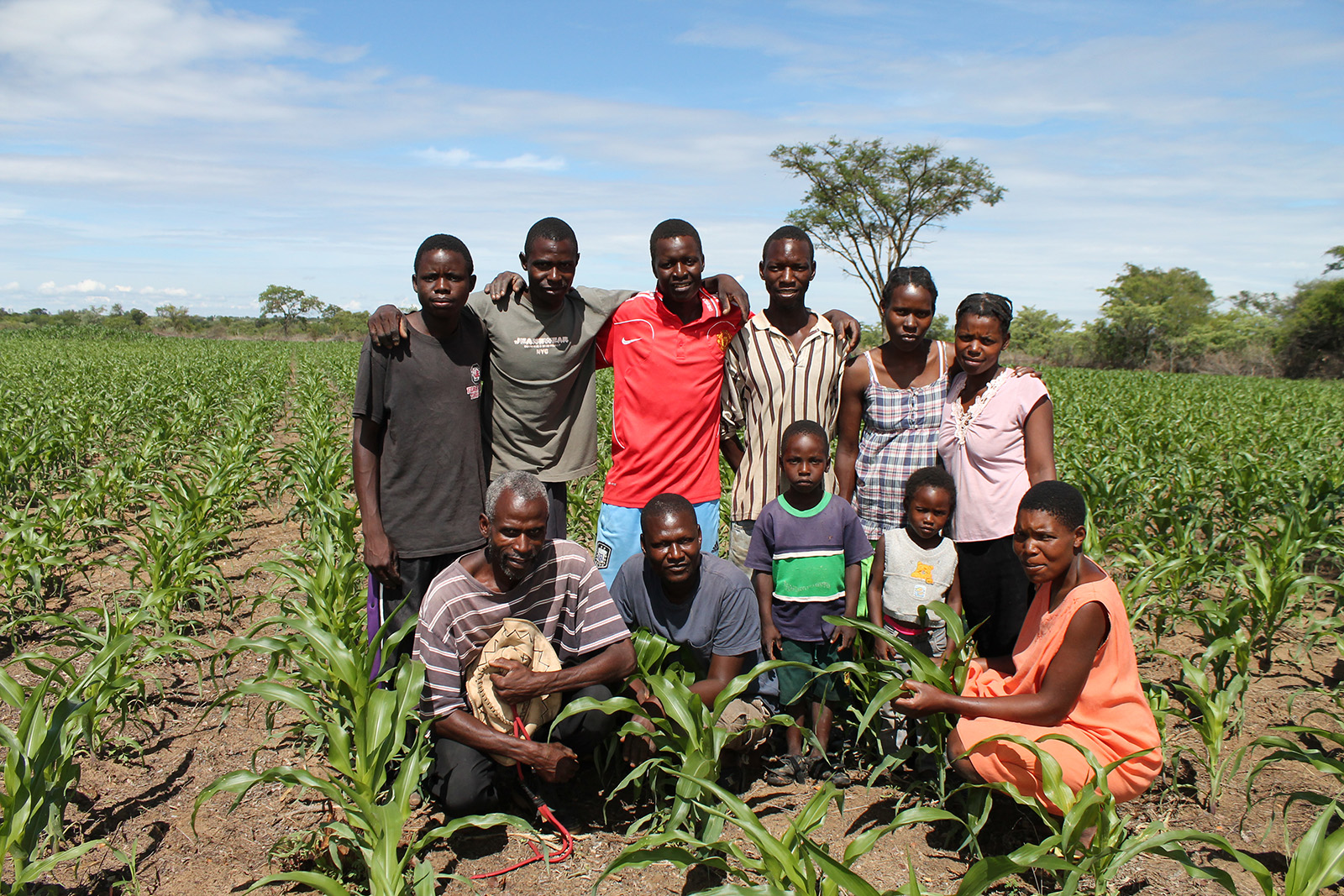(RNS) — When farmer Craig Deall first caught wind of Brian Oldreive’s no-plowing method to farming within the Nineteen Eighties, he dismissed it as lunacy. However the outcomes had been simple.
“Seeing is believing,” mentioned Deall of Oldreive’s Zimbabwean farm. “He held the nationwide corn yield file for this nation for over 20 years.”
4 a long time later, Deall and Oldreive have partnered as CEO and founding father of Foundations for Farming, a Christian nonprofit that promotes an unconventional, eco-friendly farming technique — which they name God’s method of farming — now being utilized in greater than 40 nations.
The method known as pfumvudza, a Shona phrase meaning “new beginnings.” It includes planting crops in mulch beds and was endorsed by the Zimbabwean authorities in 2020. Since then, pfumvudza has been applied by greater than 1.6 million small farmers within the nation. Thanks partly to the brand new strategies, Zimbabwe is experiencing its first meals surplus in twenty years.

Craig Deall. Photograph courtesy of Foundations for Farming
“What we’ve achieved shouldn’t be revolutionary,” mentioned Deall. “It’s going again to how issues develop naturally in creation. That’s what makes it so thrilling, and what makes it straightforward. Small-scale farmers want nothing greater than a easy hoe, and they are often the most effective farmers on the earth.”
In September, Deall turned the primary recipient of the Christian Financial Discussion board’s Extraordinary Affect Award for his function in revolutionizing agriculture in Zimbabwe and around the globe. “I’m only a small a part of the entire group,” mentioned Deall. “I wish to give all recognition to God, and to those that don’t get acknowledged, those we train within the discipline. They’re the actual beneficiaries.” The Christian Financial Discussion board is a global platform that goals to deal with world challenges by selling collaboration of Christian leaders.
Along with selling a zero-tillage farming method, Foundations for Farming teaches farmers 4 administration rules: finishing duties on time, at excessive normal, with out waste and with pleasure. The great technique additionally equips farmers to care for his or her households and have a tendency to their funds, all infused with a Christian perspective.
“It’s really not in regards to the agriculture, it’s in regards to the coronary heart,” mentioned Deall. “Foundations for Farming teaches holistically and makes use of agriculture as an entry level for the gospel.”
The religion-filled method has appealed to many Zimbabwean farmers. Makesure Muchengie, who lives in Kanyaga within the Mashonaland West province and used to make a dwelling as a gold panner, credit Foundations for Farming with introducing him to Christianity and giving his life function.
“We had been taught to be devoted with the issues God gave us,” mentioned Muchengie. “I requested myself what God had given us, and that was land, air, working water, the blanket of fallen leaves and grass.”

Foundations for Farming trainers train college students about vegetable planting on the Zimbabwe Stewardship Centre in Harare, Zimbabwe, in November 2020. Photograph courtesy of Foundations for Farming
Muchengie mentioned the Foundations for Farming method proved an nearly fast success and introduced guests from 65 kilometers away to view his thriving crops. Right now, Muchengie teaches the rules to the encompassing neighborhood, and his spouse employs the strategies to show preschoolers within the backyard of her at-home preschool.
RELATED: Pray.com helps household farms hit by historic droughts
Foundations for Farming calls its method “God’s method” as a result of it mimics how crops develop in creation and permits farmers to steward the land environmentally. “From a local weather perspective and from a farming perspective, there’s an enormous value concerned with plowing, and it’s completely pointless,” mentioned Deall.
Plowing, he argues, disturbs the equilibrium of the soil, which in its pure state has oxygen-friendly organisms close to the highest and anaerobic organisms under. It additionally releases carbon that might in any other case be sequestered within the soil and, by way of mulching, helps retain topsoil, he mentioned. Fifty p.c of the earth’s topsoil has disappeared from the planet over the past 150 years.
Persistence Denga, head of the agricultural division at Chaminuka School in Mashonaland Central province, has seen the distinction firsthand.
“On the faculty, we had been doing standard agricultural strategies solely, however there was erosion,” mentioned Denga, whose fertilized crops weren’t having a lot success. “Foundations for Farming confirmed me to not plow, however to make use of the tactic of mulching.”

Beneficiaries of Foundations for Farming’s I Was Hungry program in Zimbabwe in 2016. Photograph courtesy of Foundations for Farming
RELATED: Nuns in Africa create social enterprise startups to assist communities
Denga says the brand new method has drastically improved her faculty’s farm. Inspired by the elevated yield, she has since labored to coach her college students and the encompassing neighborhood in what she’s discovered, and almost 1,000 folks have discovered the farming strategies because of this.
“We’re grateful to Foundations for Farming for what they taught us. We’re seeing the outcomes on the bottom,” mentioned Denga. “By means of pfumvudza, you will get one thing to feed your loved ones for the entire yr.”
Trying forward, Deall hopes the farming rules will proceed to unfold in locations equivalent to Asia, South America and Europe.
“It’s been an unimaginable journey,” mentioned Deall. “It’s testimony of what God can do, once we are devoted and we’re obedient to his name.”

